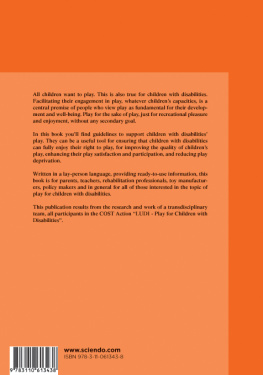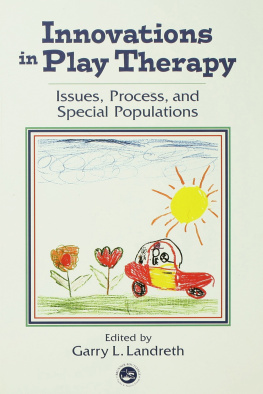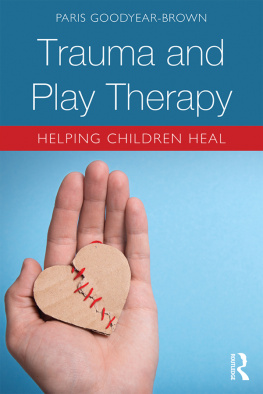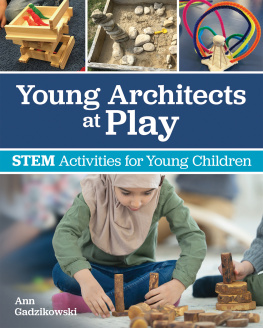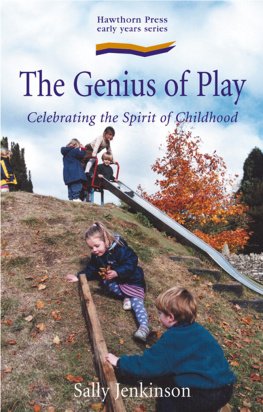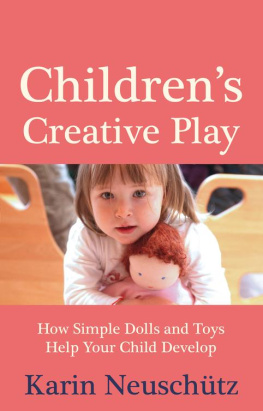Pedro Encarnação - Guidelines for supporting children with disabilities play: Methodologies, tools, and contexts
Here you can read online Pedro Encarnação - Guidelines for supporting children with disabilities play: Methodologies, tools, and contexts full text of the book (entire story) in english for free. Download pdf and epub, get meaning, cover and reviews about this ebook. City: Warsaw, year: 2018, publisher: De Gruyter Open, genre: Science. Description of the work, (preface) as well as reviews are available. Best literature library LitArk.com created for fans of good reading and offers a wide selection of genres:
Romance novel
Science fiction
Adventure
Detective
Science
History
Home and family
Prose
Art
Politics
Computer
Non-fiction
Religion
Business
Children
Humor
Choose a favorite category and find really read worthwhile books. Enjoy immersion in the world of imagination, feel the emotions of the characters or learn something new for yourself, make an fascinating discovery.
- Book:Guidelines for supporting children with disabilities play: Methodologies, tools, and contexts
- Author:
- Publisher:De Gruyter Open
- Genre:
- Year:2018
- City:Warsaw
- Rating:5 / 5
- Favourites:Add to favourites
- Your mark:
Guidelines for supporting children with disabilities play: Methodologies, tools, and contexts: summary, description and annotation
We offer to read an annotation, description, summary or preface (depends on what the author of the book "Guidelines for supporting children with disabilities play: Methodologies, tools, and contexts" wrote himself). If you haven't found the necessary information about the book — write in the comments, we will try to find it.
All children want to play. This is also true for children with disabilities. Facilitating their engagement in play, whatever childrens capacities, is a central premise of people who view play as fundamental for their development and well-being. Play for the sake of play, just for recreational pleasure and enjoyment, without any secondary goal. In this book youll find guidelines to support children with disabilities play. They can be a useful tool for ensuring that children with disabilities can fully enjoy their right to play, for improving the quality of childrens play, enhancing their play satisfaction and participation, and reducing play deprivation.
Written in a lay-person language, providing ready-to-use information, this book is for parents, teachers, rehabilitation professionals, toy manufacturers, policy makers and in general for all of those interested in the topic of play for children with disabilities.
This publication results from the research and work of a transdisciplinary team, all participants in the COST Action LUDI - Play for Children with Disabilities.
ABSTRACTING & INDEXING
Guidelines for supporting children with disabilities play is covered by the following services:
- Baidu Scholar
- DOAB (Directory of Open Access Books)
- EBSCO Discovery Service
- Google Scholar
- J-Gate
- Naviga (Softweco)
- Primo Central (ExLibris)
- ReadCube
- Semantic Scholar
- Summon (ProQuest)
- TDOne (TDNet)
- WorldCat (OCLC)
All children want to play. This is also true for children with disabilities. Facilitating their engagement in play, whatever childrens capacities, is a central premise of people who view play as fundamental for their development and well-being. Play for the sake of play, just for recreational pleasure and enjoyment, without any secondary goal.
In this book youll find guidelines to support children with disabilities play. They can be a useful tool for ensuring that children with disabilities can fully enjoy their right to play, for improving the quality of childrens play, enhancing their play satisfaction and participation, and reducing play deprivation.
Written in a lay-person language, providing ready-to-use information, this book is for parents, teachers, rehabilitation professionals, toy manufacturers, policy makers and in general for all of those interested in the topic of play for children with disabilities.
This publication results from the research and work of a transdisciplinary team, all participants in the COST Action LUDI - Play for Children with Disabilities.
Pedro Encarnação: author's other books
Who wrote Guidelines for supporting children with disabilities play: Methodologies, tools, and contexts? Find out the surname, the name of the author of the book and a list of all author's works by series.

